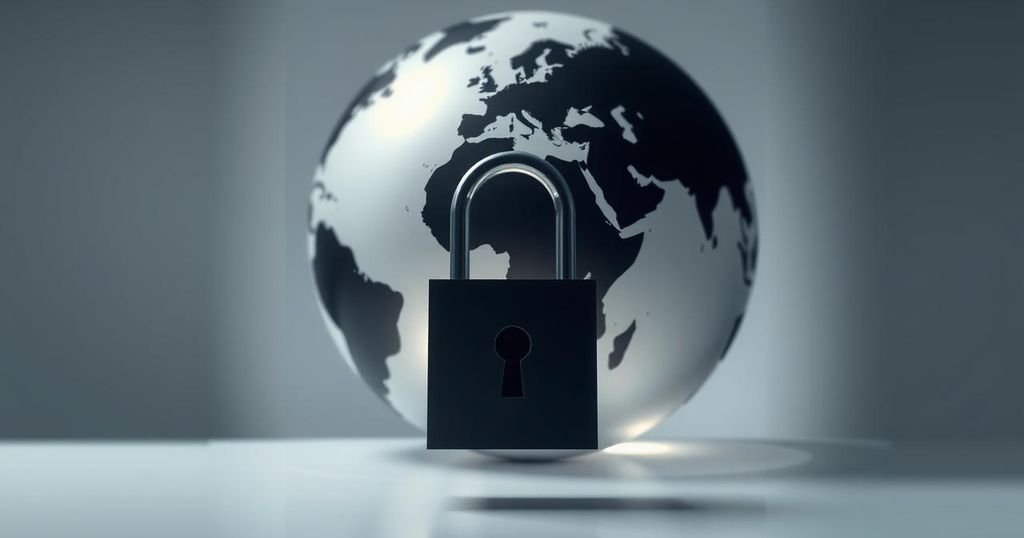The UN Security Council has unanimously extended sanctions against Al-Shabaab until December 2025, focusing on illegal arms and charcoal trade. Measures will prevent arms access to Al-Shabaab while allowing supplies to the Somali government entities. The resolution emphasizes the coordination between sanctions committees to counteract arms flows from Yemen and the need for ongoing dialogue in addressing the intersection of terrorism in the region.
The United Nations Security Council has extended the sanctions on the militant group Al-Shabaab, emphasizing the need to combat illegal arms imports and charcoal exports associated with the group. The sanctions will remain in effect until December 2025, and the mandate for the Panel of Experts overseeing the Al-Shabaab sanctions will continue until January 2026, as per the unanimous decision made in Resolution 2776 of 2025.
The Security Council members have mandated that all States must take necessary actions to prevent Al-Shabaab and other destabilizing actors from obtaining weapons and military equipment. However, these measures will not affect the arms supply to Somalia’s federal government, whose arms embargo was recently lifted. Supplies to the Somali National Police Force and National Intelligence and Security Agency will also remain unaffected.
In the discussions following the vote, the representative from Guyana, who spoke on behalf of several nations including Algeria and Somalia, expressed support for the sanctions, emphasizing their importance in the ongoing fight against Al-Shabaab. She noted the significance of assessing the effectiveness of the sanctions regime to ensure it supports government efforts in combating the group. The Secretary-General has been tasked to review the arms embargo and report on its relevance by November 2025.
The UK representative emphasized that the resolution serves to weaken Al-Shabaab further, disrupt its financial operations, and bolster collaboration with Somalia in enhancing security capabilities. The resolution captures concerns over weapon flows from Yemen, which are linked to Al-Shabaab. The UK’s delegate underscored the need for cooperation between sanctions committees to address these challenges effectively.
Concerns were echoed by other Council members, including France, regarding the weapon shipments from Yemen to Somalia, which violate existing embargoes. The French delegate stressed the necessity of preventing Al-Shabaab from forming alliances with sanctioned groups, particularly the Houthis. The US added that dialogue must be pursued between the Horn of Africa and the Arabian Peninsula to mitigate risks associated with these ties while urging further actions against Al-Shabaab operatives.
The representative from the Russian Federation suggested separating the Yemen issue from the broader sanctions dialogue. There were also mentions of the draft containing elements that align with the aspirations of Somalia regarding the sanctions regime, which has been established since 1992.
From Pakistan, it was reiterated that disrupting Al-Shabaab’s ability to radicalize and recruit, as well as their fundraising efforts through extortion and piracy, is imperative. The delegation highlighted that ongoing humanitarian assistance and economic support are crucial to remedy the root causes of terrorism, advocating for a united response from regional and global actors.
In conclusion, the UN Security Council’s decision to extend sanctions on Al-Shabaab reflects a collective commitment to disrupting the group’s illicit activities and supporting Somalia’s peace efforts. The discussion highlighted the importance of international collaboration in addressing the complexities of arms trafficking and terrorism. The upcoming assessments and continued humanitarian support will be vital in reinforcing Somalia’s stability and countering terrorism effectively.
Original Source: www.garoweonline.com




